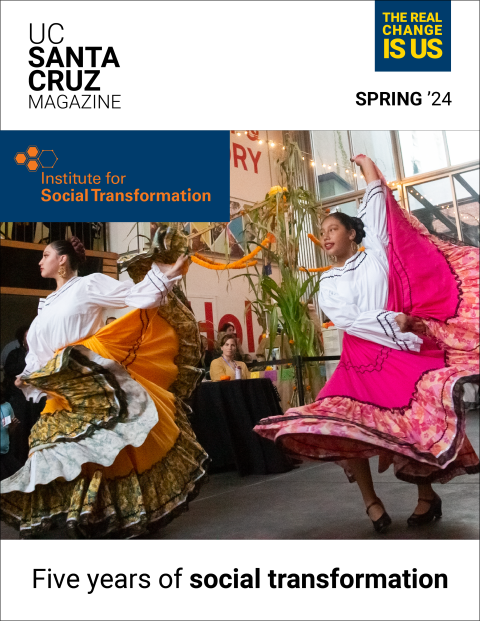UC Santa Cruz—one of only four universities that is both a Hispanic-Serving Institution and a member of the Association of American Universities—will be represented in a panel discussion, “A Critical Dialogue on Leading Innovation, Scholarship, and Solutions Centered on Servingness.”
The hybrid event will be 12:30–3 p.m. (PST) on Sept. 21, both in Washington, D.C. and streamed live (registration required). The discussion will be moderated by Barbara Snyder, president of the Association of American Universities. University of Arizona Assistant Vice Provost for HSI Initiatives Marla A. Franco will deliver opening remarks.
Chancellor Cynthia Larive will join three other panelists representing The University of Arizona, UC Irvine, and UC Santa Barbara. The discussion is being organized by The University of Arizona.
The UC Santa Cruz HSI team is focused on creating educational equity for undergraduate and graduate students and addressing disparities that have been created by differing families, economic backgrounds, and educational experiences. The campus faculty and staff strive to understand and design programs that account for and correct these disparities.
In collaboration with scores of faculty and staff across campus, the Hispanic Serving Institution Initiatives team will be launching—and continuing—a range of programs and services to support undergraduate and graduate students in their academic success.
Enrollment of Latinx undergraduates surpassed 25 percent in 2012, making UC Santa Cruz the third UC to become a Hispanic Serving Institution (HSI) according to the U.S. Department of Education definition. Reaching this milestone enabled the university to join the Hispanic Association of Colleges & Universities (HACU) as a member institution, and to eventually apply for federal grants focused on advancing educational equity and strengthening support for Latinx students and other underrepresented and low-income students.



